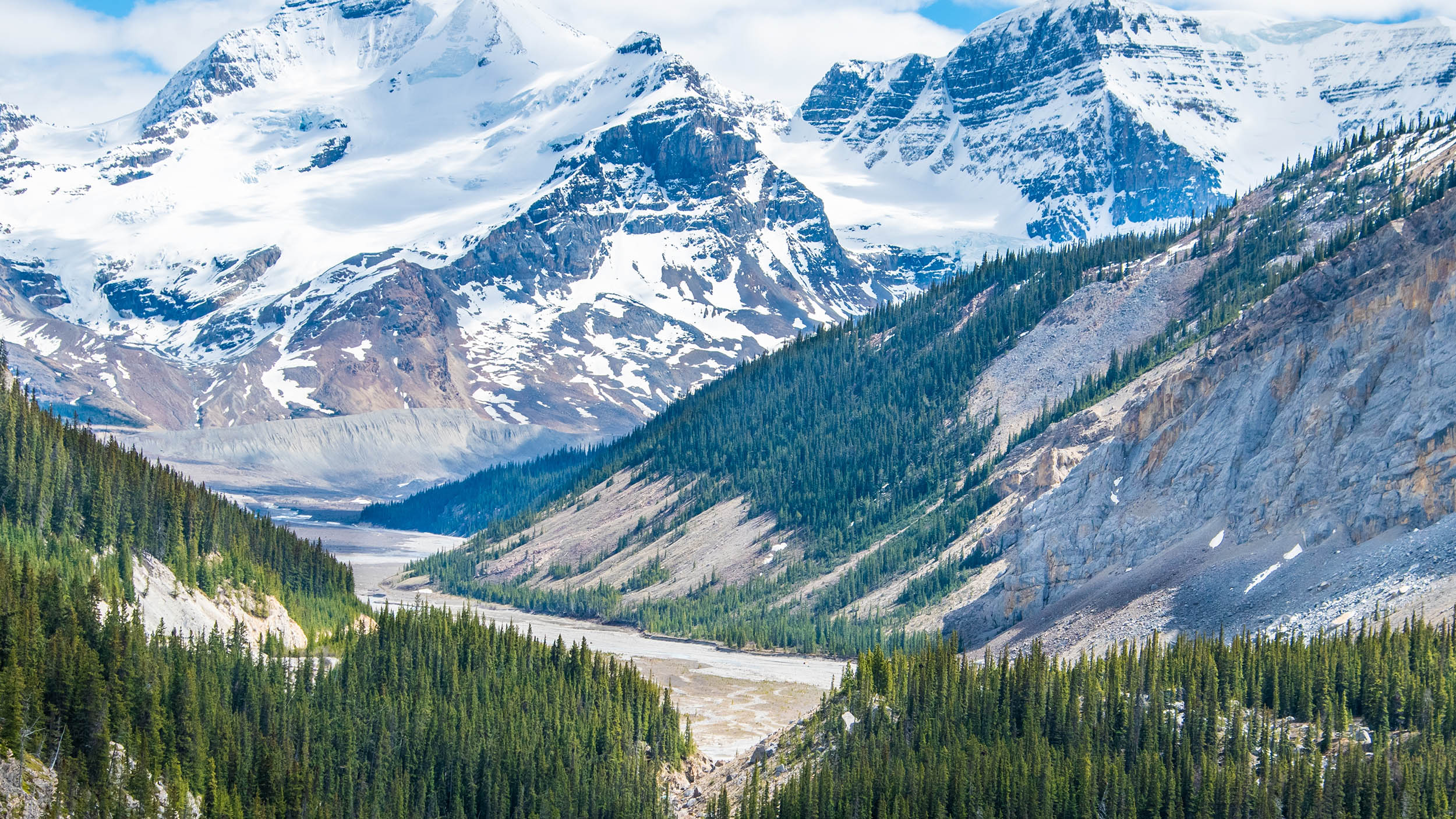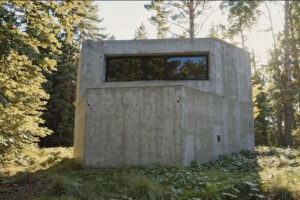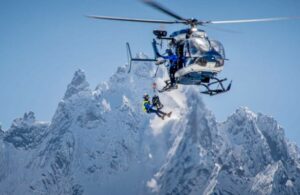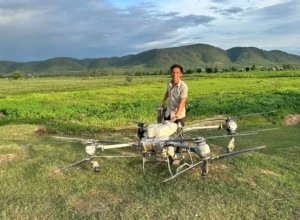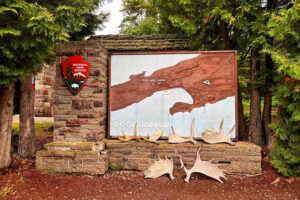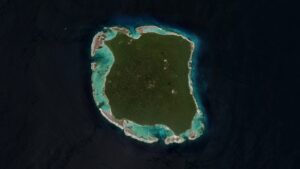Karsten Heuer — an accomplished Canadian biologist, conservationist, author, and adventurer — died earlier this week after several years with a progressive neurological condition. The Yellowstone to Yukon Conservation Initiative, a non-profit with which Heuer was associated, confirmed the news in an Instagram post earlier today. Several of Heuer’s friends and colleagues have taken to social media to mourn his passing and remember his legacy.
And what a legacy it is. As a University of Calgary ecology student in the early 1990s, Heuer had a chance run-in with a Parks Canada warden who’d been kicked in the face by an elk. Heuer, a longtime lover of mountains and forests, was intrigued by the idea of a career that involved that kind of intimacy with nature. He changed tacks and began a lifelong association with Parks Canada: first as a student, then as a warden, and then leading a series of increasingly ambitious conservation programs.
View this post on Instagram
Wildlife corridors
Heuer was an early leader in the large-landscape-scale conservation movement. It’s the idea that roomy wildlife corridors — and not isolated pockets of protected lands — are the way forward in protecting and restoring complex ecosystems.
The conservationist’s early flirtations with the concept sprung from the winter of 1992, when Heuer and a team tracked wildlife on foot through developed areas in Banff. The resulting data dramatically changed the city’s development plans, leading to a 700 percent increase in wolf use of the area.
As a bonus, Heuer’s employment with Parks Canada gave him the freedom to pursue adventures that were intimately and — by Heuer’s own reckoning — spiritually tied to his conservation ideas.
Adventures in conservation
His 3,400km trek from Yellowstone National Park, Wyoming, to Watson Lake, Yukon, in the late 1990s, is a perfect example. An early meeting of the Yellowstone to Yukon Conservation Initiative inspired the journey, and Heuer came away from it even more committed to the idea of large-landscape conservation.
“It’s much more than a scientific, logical thing. It has become a spiritual thing, where cutting off the corridors, to me, it literally is killing animals knowingly,” Heuer told The Narwhal in an interview earlier this year.
Heuer’s account of the adventure, Walking the Big Wild, won the Banff Mountain Book Festival Award for Mountain Literature.
In 2003, Heuer and his wife, filmmaker Leanne Allison, followed the Porcupine caribou herd for 1,500km across the Alaskan and Yukon tundra. The adventure also served as the couple’s honeymoon. Allison made a film, Being Caribou, while Heuer produced a book, Being Caribou: Five Months on Foot with an Arctic Herd.
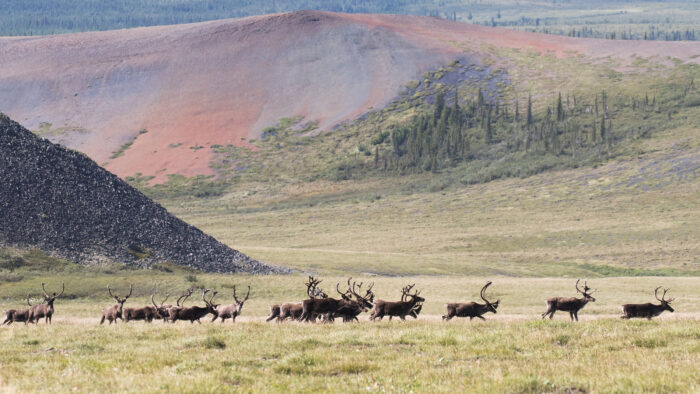
Photo: Shutterstock
Conservation classics
Both these works were lauded as classics of conservation filmmaking and writing. The couple’s other film, Finding Farley, chronicles Heuer, Allison, and their then two-year-old son Zev on a 5,000km journey in the footsteps of Canadian author and conservationist Farley Mowat.
Heuer eventually took the reins of the Yellowstone to Yukon Conservation Initiative, but a life of fundraising and cocktail parties was difficult for an outdoor person. He stepped away and rejoined Parks Canada. There, he spent most of his remaining years, eventually championing an ambitious bison restoration project in Banff National Park.
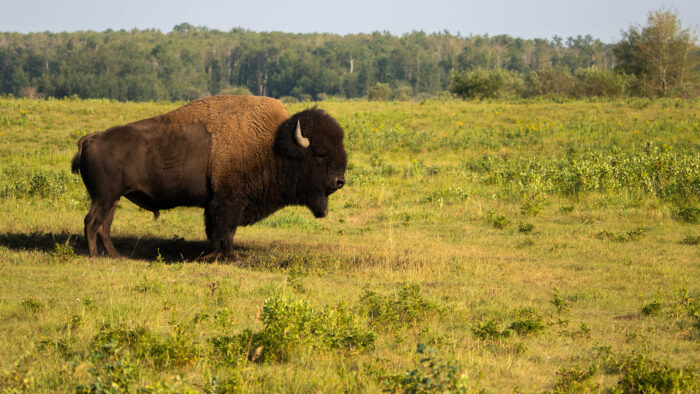
Photo: Shutterstock
A seed herd of 16 animals was released in 2017. As of 2024, the thriving population now numbers over 130.
“We’ve restored a missing species to Banff that’s been gone for 140 years. It’s not gone anymore, and it’s fantastic. It’s a really tangible thing,” Harvey Locke, one of Heuer’s friends and colleagues, told The Narwhal.
Leaving on his own terms
In 2023, Heuer was diagnosed with a fast-moving neurological condition called multiple system atrophy. The disease progressed quickly, cutting Heuer off from the activities and landscapes that had formed the background of his entire life and career.
Heuer decided to end his life via Canada’s Medical Assistance in Dying (MAID) program. Variations of such programs are also legal in the Netherlands, Switzerland, Germany, Australia, Belgium, France, and Japan. Eleven U.S. states also allow the practice under certain circumstances.
Heuer passed on November 5, surrounded by his family and loved ones. Days before his death, Heuer and Allison were awarded the Banff Centre Mountain Film and Book Festival’s Summit of Excellence Award.
